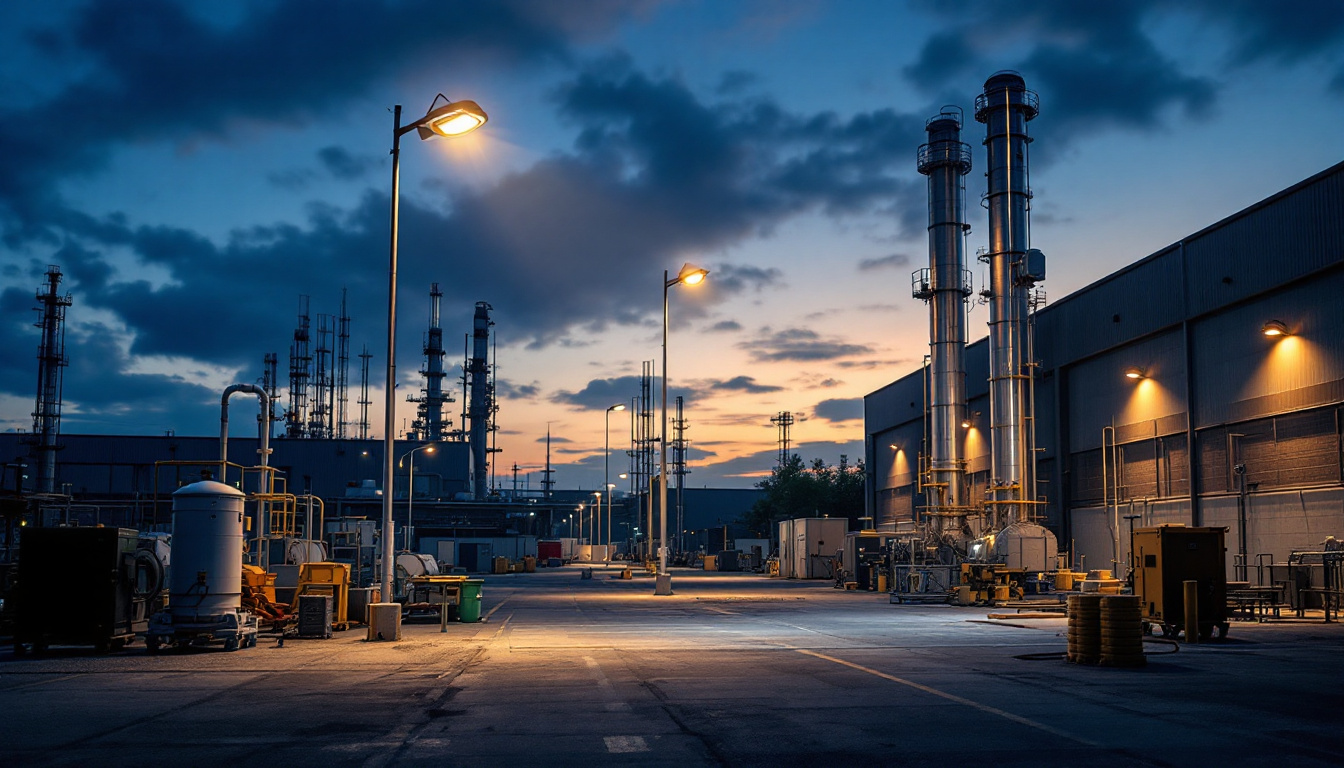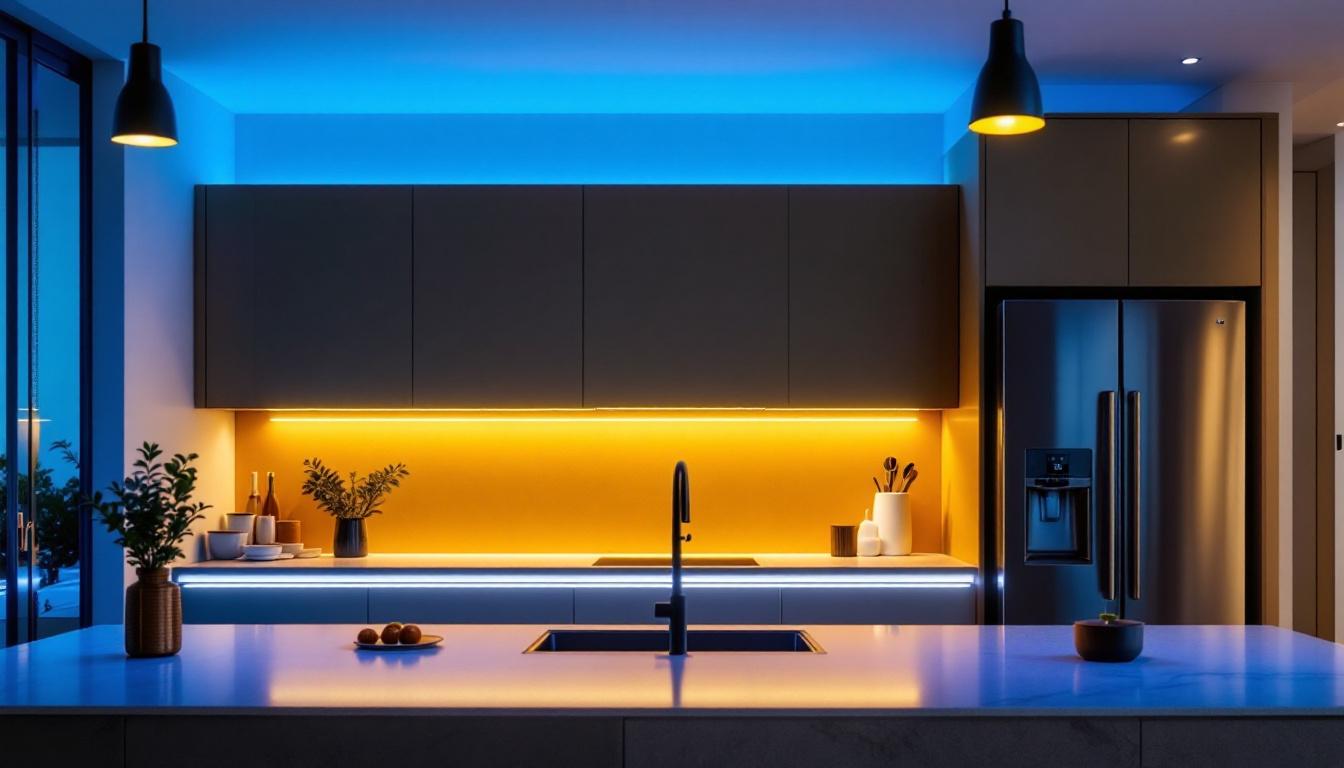
In the realm of industrial settings, outdoor lighting plays a pivotal role in ensuring safety, productivity, and efficiency. For lighting contractors, understanding the implications of industrial outdoor lighting can significantly influence their bottom line. This article delves into the various aspects of industrial outdoor lighting and how it affects the financial health of lighting contractors.
Outdoor lighting in industrial environments is not merely an aesthetic choice; it is a fundamental necessity. Proper lighting enhances visibility, reduces accidents, and ensures compliance with safety regulations. Moreover, it can also contribute to energy efficiency, which is increasingly becoming a priority in industrial operations. The right lighting can significantly influence the productivity of workers, as well-lit spaces allow for better focus and efficiency during nighttime operations or in low-light conditions. Additionally, advancements in LED technology have made it possible to achieve brighter lighting with lower energy consumption, further emphasizing the importance of modern lighting solutions in industrial settings.
One of the primary functions of outdoor lighting in industrial settings is to enhance safety and security. Well-lit areas deter criminal activity and reduce the risk of accidents. Employees working in illuminated environments are less likely to trip, fall, or suffer injuries due to poor visibility. For lighting contractors, this underscores the importance of designing and installing effective lighting solutions that meet safety standards. Furthermore, proper lighting can also facilitate surveillance efforts, as cameras and other security measures are more effective in well-lit areas, providing an additional layer of protection for valuable assets and personnel.
Moreover, security lighting can be tailored to specific needs, such as motion sensors or timers, which can further enhance safety measures. By offering customized solutions, contractors can differentiate themselves in a competitive market, potentially leading to increased contracts and higher profits. The integration of smart lighting systems, which can be monitored and controlled remotely, is becoming increasingly popular. These systems not only improve safety but also allow for real-time adjustments based on environmental conditions, further optimizing energy use and operational efficiency.
Industrial facilities are often subject to stringent regulations regarding safety and environmental impact. Compliance with these regulations is crucial for avoiding fines and legal issues. Proper outdoor lighting is often a requirement in these regulations, making it essential for contractors to stay informed about local and national standards. Additionally, the push for sustainability has led to an increased focus on eco-friendly lighting solutions, such as solar-powered fixtures, which can help facilities meet both compliance requirements and corporate social responsibility goals.
By providing compliant lighting solutions, contractors can position themselves as reliable partners for industrial clients. This not only fosters trust but also opens doors for future projects, ultimately contributing to a healthier bottom line. Moreover, staying ahead of regulatory changes can allow contractors to offer proactive solutions, ensuring that their clients are always in compliance and minimizing the risk of costly disruptions. As industries evolve, the demand for innovative and compliant lighting solutions will only grow, creating new opportunities for contractors willing to adapt and invest in their expertise.
Energy efficiency is a significant concern for industrial facilities, as it directly impacts operational costs. Lighting contractors can play a crucial role in helping clients reduce energy consumption through innovative outdoor lighting solutions.
One of the most significant advancements in outdoor lighting technology is the advent of LED lighting. LEDs consume significantly less energy than traditional lighting options, such as incandescent or fluorescent bulbs. This reduction in energy usage translates to lower utility bills, which can be a compelling selling point for contractors.
Moreover, LEDs have a longer lifespan than traditional bulbs, reducing maintenance costs and the frequency of replacements. By advocating for LED solutions, lighting contractors can not only help their clients save money but also enhance their reputation as forward-thinking professionals who prioritize sustainability. The environmental benefits of LEDs extend beyond just energy savings; they also produce less heat, which can contribute to a cooler working environment and reduce the load on air conditioning systems during hot months. This multifaceted approach to energy savings can be a significant draw for businesses looking to improve their overall operational efficiency.
In addition to LED technology, smart lighting solutions are gaining traction in industrial settings. These systems utilize sensors and automation to optimize lighting based on real-time conditions. For example, lights can dim or turn off when no activity is detected, further conserving energy.
By integrating smart lighting solutions into their offerings, contractors can position themselves as leaders in innovation. This not only appeals to environmentally conscious clients but also allows contractors to command higher fees for advanced services. Furthermore, smart lighting systems can be integrated with building management systems, allowing for centralized control and monitoring. This integration enhances operational efficiency by providing valuable data on energy usage patterns, enabling facilities to make informed decisions about their lighting strategies. As industries increasingly seek to adopt smart technologies, lighting contractors who offer these solutions will find themselves at the forefront of a rapidly evolving market.
Outdoor lighting significantly influences productivity in industrial settings. Properly lit environments can enhance employee morale and efficiency, leading to improved output and reduced downtime.
Research has shown that adequate lighting can improve employee satisfaction and well-being. When workers feel safe and comfortable in their environment, they are more likely to be productive. Lighting contractors can contribute to this positive atmosphere by designing lighting systems that provide even illumination and minimize glare.
Additionally, creating visually appealing outdoor spaces with thoughtful lighting can enhance the overall work environment. This can be an attractive selling point for contractors looking to secure contracts with companies that prioritize employee welfare.
Inadequate outdoor lighting can lead to accidents and injuries, resulting in costly downtime. By investing in high-quality lighting solutions, contractors can help industrial clients minimize these risks. This not only protects employees but also ensures that operations run smoothly and efficiently.
Lighting contractors who emphasize the importance of reliable outdoor lighting can build strong relationships with clients, leading to repeat business and referrals. This, in turn, positively impacts their bottom line.
For lighting contractors, understanding how industrial outdoor lighting affects their business is crucial for effective marketing and business development. By leveraging the benefits of outdoor lighting, contractors can position themselves as experts in the field.
Many industrial clients may not fully understand the advantages of investing in quality outdoor lighting. Contractors can take the initiative to educate their clients about the safety, energy efficiency, and productivity benefits associated with proper lighting. This can be done through informative brochures, presentations, or even workshops.
By providing valuable information, contractors can build trust and credibility, making it more likely that clients will choose their services over competitors. This educational approach can lead to increased sales and a stronger reputation in the industry.
Showcasing successful projects through case studies and client testimonials can be a powerful marketing tool. By highlighting previous work, contractors can demonstrate their expertise and the tangible benefits of their lighting solutions. This not only attracts new clients but also reinforces relationships with existing ones.
Moreover, sharing real-world examples of how outdoor lighting has positively impacted other businesses can serve as a persuasive argument for potential clients. This strategy can effectively convert inquiries into contracts, ultimately boosting the contractor’s bottom line.
The landscape of industrial outdoor lighting is continually evolving, driven by advancements in technology and changing client needs. Staying ahead of these trends is essential for lighting contractors to remain competitive and profitable.
As industries become more environmentally conscious, there is a growing emphasis on sustainability in lighting solutions. Contractors who prioritize eco-friendly options, such as solar-powered lights or energy-efficient LEDs, can attract clients looking to reduce their carbon footprint.
By aligning their offerings with sustainability goals, contractors not only meet client demands but also position themselves as responsible business partners. This can lead to increased contracts and a more robust bottom line.
The Internet of Things (IoT) is transforming the way outdoor lighting systems are designed and operated. Contractors who embrace smart technologies can offer clients enhanced control and monitoring capabilities, leading to improved efficiency and cost savings.
Integrating IoT solutions into outdoor lighting can also open up new revenue streams for contractors. By providing ongoing maintenance and support for these advanced systems, contractors can create long-term relationships with clients, ensuring a steady flow of income.
Industrial outdoor lighting is a critical component that affects not only the safety and productivity of industrial operations but also the financial health of lighting contractors. By understanding the importance of effective outdoor lighting, contractors can position themselves as valuable partners in the industrial sector.
Through energy-efficient solutions, innovative technologies, and a commitment to client education, lighting contractors can enhance their offerings and ultimately improve their bottom line. As the industry continues to evolve, staying informed about trends and advancements will be essential for long-term success.
In a competitive market, those who prioritize quality, safety, and sustainability in their outdoor lighting solutions will likely emerge as leaders, reaping the rewards of their efforts in both reputation and profitability.
Ready to enhance your industrial outdoor lighting offerings and boost your bottom line? At LumenWholesale, we provide lighting contractors with the highest quality, spec-grade lighting products at unbeatable wholesale prices. Say goodbye to local distributor markups and hello to superior lighting solutions that meet the most rigorous industry standards. With our hassle-free bulk buying and free shipping, you can trust that you’re getting premium lighting at the best value — all with the convenience and affordability you deserve. Elevate your lighting projects today by visiting Wholesale Lighting at the Best Value and discover the LumenWholesale difference.

Discover why purchasing LED wall pack retrofit kits in bulk from local distributors might not be the best choice.

Discover how the 2025 best solar pole lights are revolutionizing the industry and boosting profits for lighting contractors.

Discover how LED lighting under kitchen cabinets can transform your cooking space into a well-lit, stylish haven.

Discover essential tips and insights for lighting contractors to navigate the latest trends while avoiding common pitfalls.